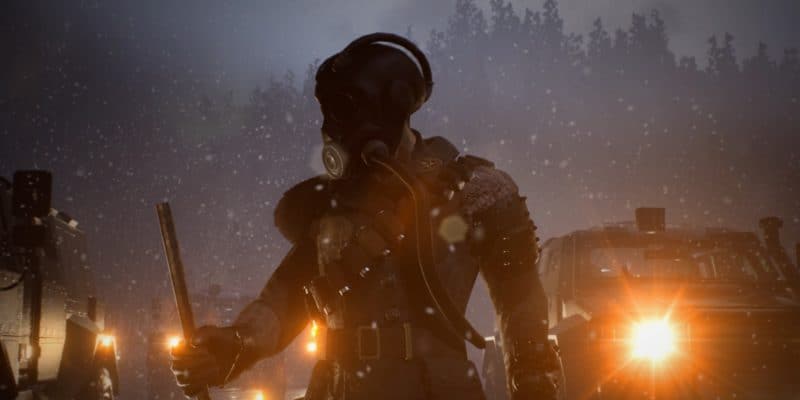
After its successful crowdfunding via Fig and later with the help of Microsoft, inXile Entertainment’s Wasteland 3 is set to arrive this week via Steam. Featuring fresh and familiar faces, exploration of the vast wilderness of Colorado, turn-based combat, zany humor, and difficult decisions, Wasteland 3 promises loads of hours of RPG goodness.
Your adventure in Wasteland 3 starts where the Desert Rangers left off in the second game: worse for wear. Their Arizona base having been nuked to stop a resurgent Cochise AI, the survivors try to look for aid.
Those meddling kids
This is when the Patriarch comes in. The leader—some would say the “dictator”—of Colorado will send supplies in return for helping him deal with his children. It’s not just a case of babysitting, mind you. Each of the Patriarch’s kids—Valor, Victory, and Liberty—are out to topple him from his lofty perch.
Heck, they’re also either bloodthirsty or insane. This sets the stage for Wasteland 3‘s main quests and the arrival of the Rangers in Colorado.
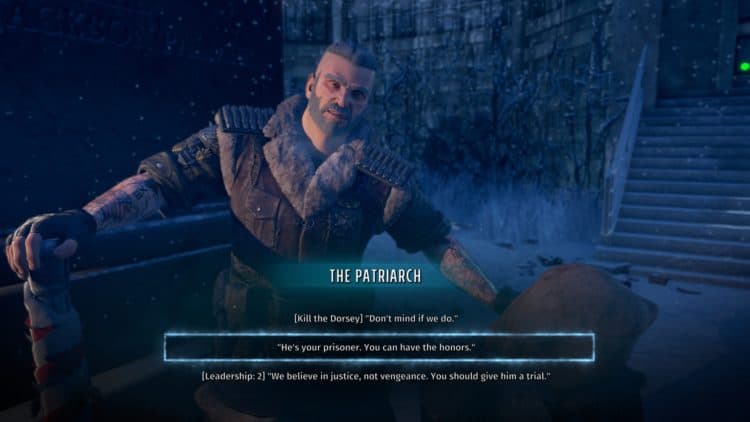
Wasteland 3‘s new beginnings
Unfortunately, the Rangers suffer devastating casualties due to an enemy ambush. The tutorial level, the aptly named “Ambush Site,” gives you the gist of Wasteland 3‘s new mechanics and systems.
First, you can only create two custom Rangers at the start. You’ll then assign their attributes, skills, perks, and quirks. Veterans of the series will notice how stats are more streamlined now. For instance, action points (AP) are solely governed by the Coordination attribute. Likewise, items go to a shared loot pool with an unlimited carrying capacity (no more individual stashes). Indeed, these and many other changes make the stat allocations for Coordination, Luck, Awareness, Strength, Speed, Intelligence, and Charisma (aka CLASSIC) more manageable.
From there, your chosen skills will come into play. Did you pick Hard Ass to intimidate opponents during speech checks? How about Mechanics to repair generators? What about the all-important Lockpicking for all those chests, or Sneaky Shit to ensure that you can disable tripwires?
Early on in Wasteland 3‘s campaign, you’ll realize how your picks are key to your progression and how the story would play out. When a bandit holds one of your fellow Rangers at gunpoint, and you need Hard Ass/Kiss Ass and First Aid to ensure that your comrade survives, what’s your course of action? If you fail, that soldier’s dead; if you succeed, you’ll find out that she could become a unique companion later in the game.
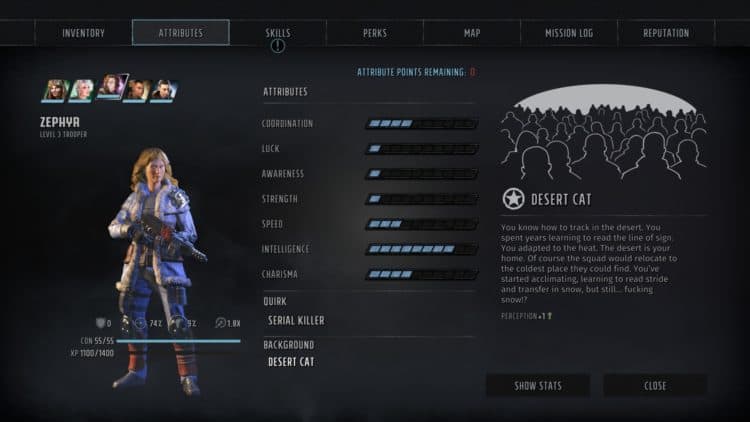
Tactical turnaround
Perhaps the biggest change in Wasteland 3 is its combat system. Wasteland 2 used a “turn order system,” where your characters and their foes alternated turns based on their initiative stat. Now, all your units can act during the same turn followed by the enemy group. Think of this combat system as akin to the mainline XCOM titles. Funnily enough, XCOM switched to a “turn order system” with the recent Chimera Squad spinoff.
Even better, you can now have up to six people in your squad. This leads to bigger firefights that require you to plan ahead, even letting you choose from end-turn actions such as defend, ambush (overwatch), or prepare (save some remaining action points/AP for the next round).
Oh, and remember those two custom Rangers that you created at the beginning of the game? Well, once you reach a new area, you can select from different templates or make completely new ones from scratch. You can have a minimum of two custom Rangers and four unique companions (2/4), a maximum of four custom Rangers and two unique companions (4/2), or three of each (3/3). Since you’ve got more characters to bring in your journeys, you can mix and match so that your team has each skill check covered.
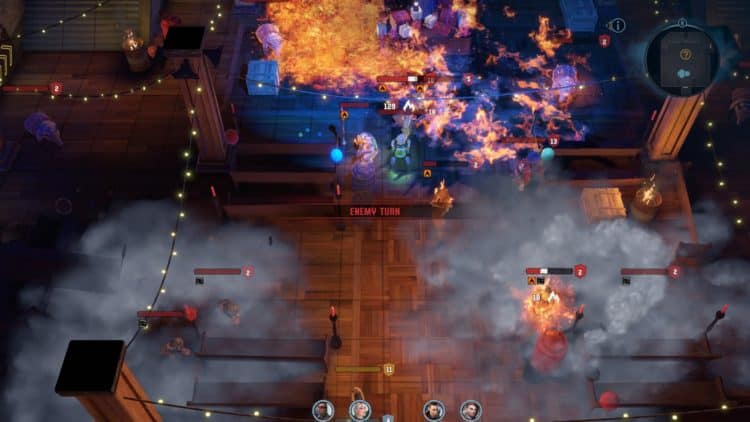
Wasteland 3‘s difficult decisions
The original Wasteland was known for its “persistent” environments where, if you returned to a location, you’ll find it just as how you left it. These are the implications of consequences stemming from your actions (one that Wasteland 2 further exemplified). In Wasteland 3, the decisions you make will be more crucial than ever. That rescued soldier who eventually became a unique companion is just the tip of the iceberg.
There are more key decisions and moments that you need to ponder on. Some examples include what to do with a prisoner who assisted a mass murder. As mentioned in the beta preview that I also covered, executing this character leads to a worsening of relations with one of the game’s five factions. Arresting them could lead to a reputation boost with another faction, but only if they’re imprisoned by the sheriff and not by one of your officers.
Next, as soon as you step foot on the world map, you’ll need to choose between two locations that are calling for your aid—a homestead or a caravan—and you can only save one. It’s like the previous game’s Ag Center vs. Highpool decision. Later, you could find yourself teaming up with one of the Patriarch’s wayward children, and an entity might judge you for all your previous transgressions (in a moment that left me in awe).
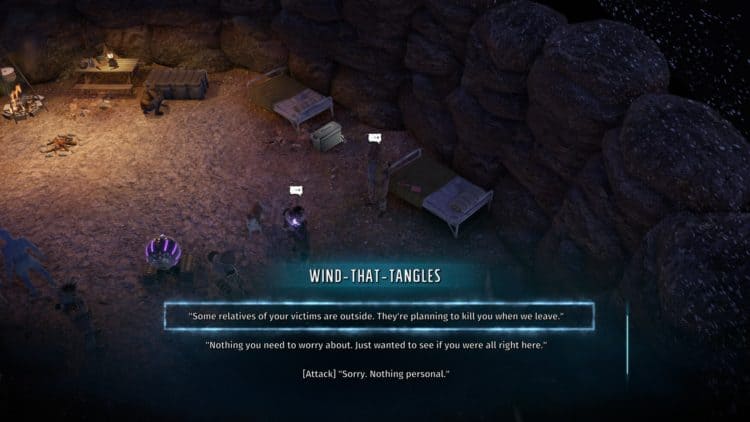
Familiar faces
It gets even more conflicting as you continue to progress. Did you find a synth? Cool. Now, what are you going to do when Gary “NaCl” Wolfe tells you to kill it? Wolfe, as series vets would know, is a character from the previous game. He, like many others, can be spotted as you continue onward in Wasteland 3‘s campaign.
There are many fan favorites that make an appearance, leading to moments that’d make you grin and fist pump due to excitement. There are also a few nods and references here and there, especially as you discover what the hell happened to the Rangers (and the rest of Arizona) after the Citadel’s destruction. Even Quarex, a Rail Nomad who likes collecting classic video games, now runs a gaming museum complete with “the last copy of Wasteland 4” as an exhibit.
Speaking of museums, you could even have one in your newly recommissioned Ranger HQ in Colorado. You’re not limited to a museum because you can also find people who’ll staff your armory, med bay, brig, and garage. Whether it’s your fame, reputation, squad, or facilities, Wasteland 3 has you rebuilding your organization in this new state.
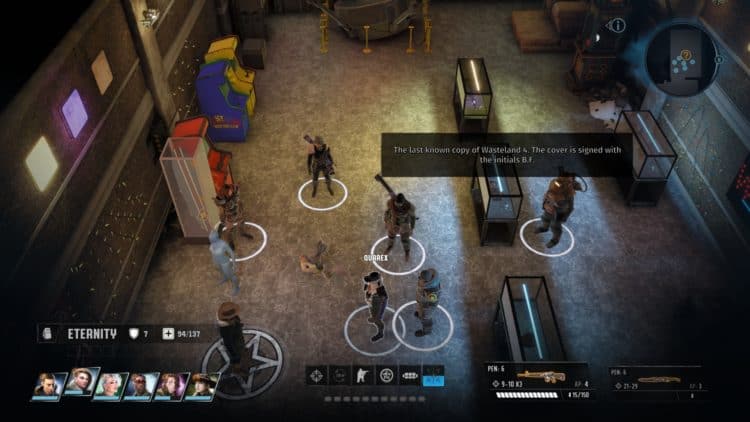
The winter wonder-wasteland
As for your garage, this becomes a fixture in Wasteland 3, since this is where you fine-tune your vehicle, the Kodiak. Unlike in previous titles where you’re just walking around (or maybe running out of water), Wasteland 3 will let you roam Colorado’s frozen and mountainous terrain while driving the Kodiak. Additionally, you won’t need to collect a resource (like fuel) just to keep it running on the world map.
At best, you’ll need to make sure that you’ve got the skills to avoid or survive random encounters. You’ll also need those that can net you a lot of stuff from stashes, crates, camps, and bunkers (which act as “shrines” of sorts). You don’t get to explore them, but you do have dialogue options/skill checks on how to investigate and loot them.
Exploration is definitely a lot more comfortable this time around. The Kodiak even doubles as a seventh squad member in many battles since you can equip it with mortars, cannons, and various armor platings to smash through barriers and enemies.
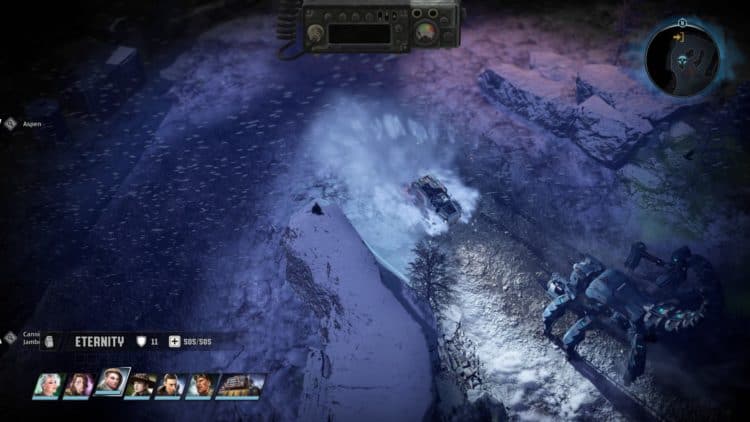
Minor misgivings
Still, I did have a few misgivings. Although Wasteland 3 doesn’t suffer from a litany of atrocious bugs, there were a few minor issues. These include sidequests that don’t get completed, instances or incidents that seem to be unfinished, and a particular zone that led to an infinite loading screen if you loaded your save. There were also a few hiccups, such as framerate drops when lots of special effects were on-screen (i.e., flames), the times when your squad’s lineup (i.e., listed order) continuously resetting, consumables disappearing from your quick slots (you’d need to re-equip them again), and the names of zones staying on-screen all throughout (which requires you to relaunch the game).
Some features, likewise, need QOL improvements. For example, you can’t use certain First Aid consumables on a teammate directly via your inventory (as you’d need to equip the item first to use it on the tactical map). I’d also like to see a sorting option (price or damage/armor stats) and utility items don’t even have their own tabs. Lastly, AI-controlled companions can be quite a nuisance when they start wading in your line of fire or AoE blasts. Bear in mind that I already reported these issues, so we could see some fixes in time for the game’s release.
Perhaps the biggest point of contention I can think of—and one that’ll be considered by long-time fans—is that the challenge becomes moot halfway through the game (at least even at Ranger difficulty). Yes, combat will still test your mettle. However, the aforementioned skill checks will become forgettable due to so many options combined with a revolving door of newly-created characters. On one hand, you can think of this as Wasteland 3 becoming more accessible. On the other, you could also feel that strict character builds and min-maxing would be lessened to a degree—maybe you’d just pick the Supreme Jerk difficulty or wait for the post-launch permadeath option if you want a real challenge.
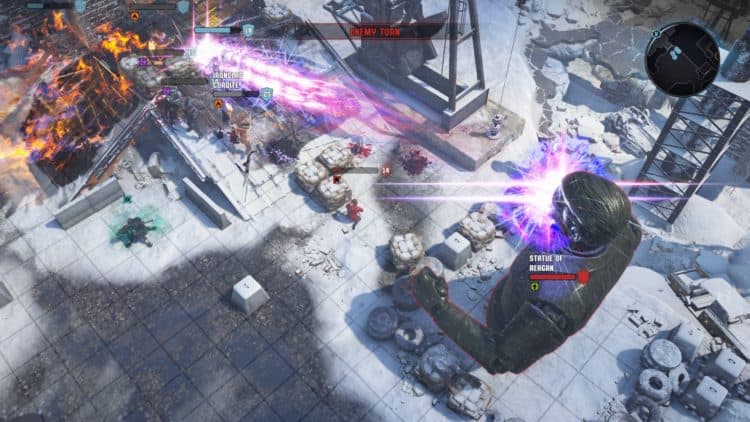
The War for Colorado
In spite of these misgivings, I can’t fault Wasteland 3 for its visuals, as inXile Entertainment really did a fine job with this title. Barring the rare FPS hiccup, the effects remain clean and crisp, with destinations and the world map fully immersing you in the unforgiving frontier of Colorado. In terms of audio and music, there are no qualms here. The talents of Mark Morgan (who also composed the soundtrack for Wasteland 2, Fallout, and Fallout 2) and Mary Ramos (the musical director for several of Quentin Tarantino’s films) are on full display. It came to a point when I half expected Nancy Sinatra’s version of “Bang Bang (My Baby Shot Me Down)” to start playing in the middle of a firefight. Still, “America the Beautiful” does suffice.
In the end, I still found that Wasteland 3 provided the same vibes that the series is known for. There are zany, over-the-top characters that’d make you giggle due to their dark humor. Some funny moments come from ambient dialogue, like people prank calling Ranger HQ. Others, meanwhile, are discovered as you do quests, such as randomly encountering Scotchmo in a dungeon or Santa Claus going “ho ho ho-ly shit” after you reveal that he’s got a drug den filled with elves. Oh, and there’s the gigantic Ronald Reagan statue that fires lasers from its eyes.
There are locations and scenes so grim and macabre that you have no doubts that this is set in a dark, post-apocalyptic world, such as members of a death cult chopping off their victims’ limbs and attaching their torsos to “kites.” Of course, there are dilemmas that led to various outcomes, the repercussions of which won’t be felt until hours have passed or once you’ve reached the game’s final act.
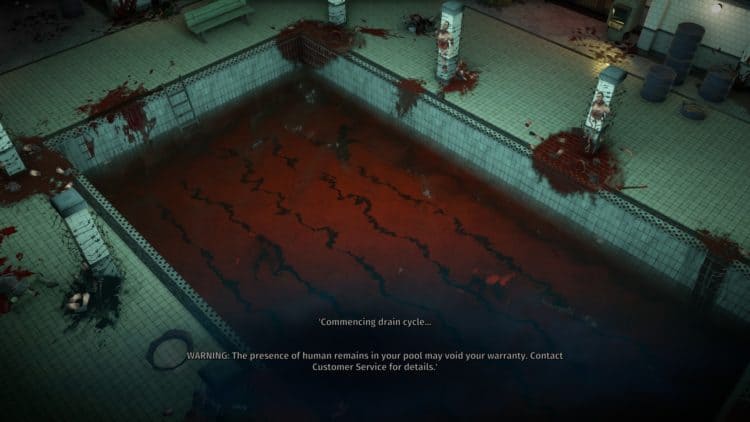
Wasteland 3 also has a co-op feature. Unfortunately, I wasn’t able to try this during the course of my review. My experiences were purely from a single-player standpoint.
Nevertheless, my first completion clocked in at roughly 60 hours. This also included sidequests and some reloading/save-scumming to jot down notes for various guides. I’ve even replayed the final act to see different epilogues. I just wish the campaign could’ve been extended as the final act itself felt rushed.
Don’t get me wrong; Wasteland 3 remains a complete and satisfying journey. However, we’re only scratching the surface of what this new frontier holds for the Rangers. I hope to see more content down the road and maybe more unique companions who’ll join the squad.
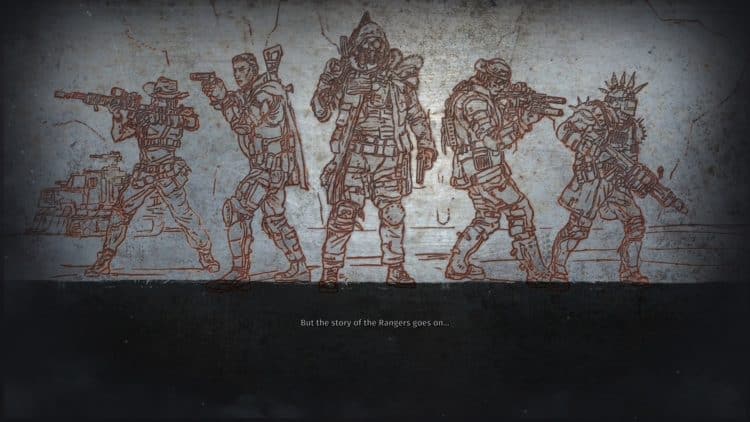
Wasteland 3
There are a few misgivings related to Wasteland 3’s technical aspects, mechanics, and overall challenge. However, its cast of characters (both old and new), the switch to a traditional turn-based combat system, and branching paths filled with decisions and dire consequences make for a superb journey with the Desert Rangers.


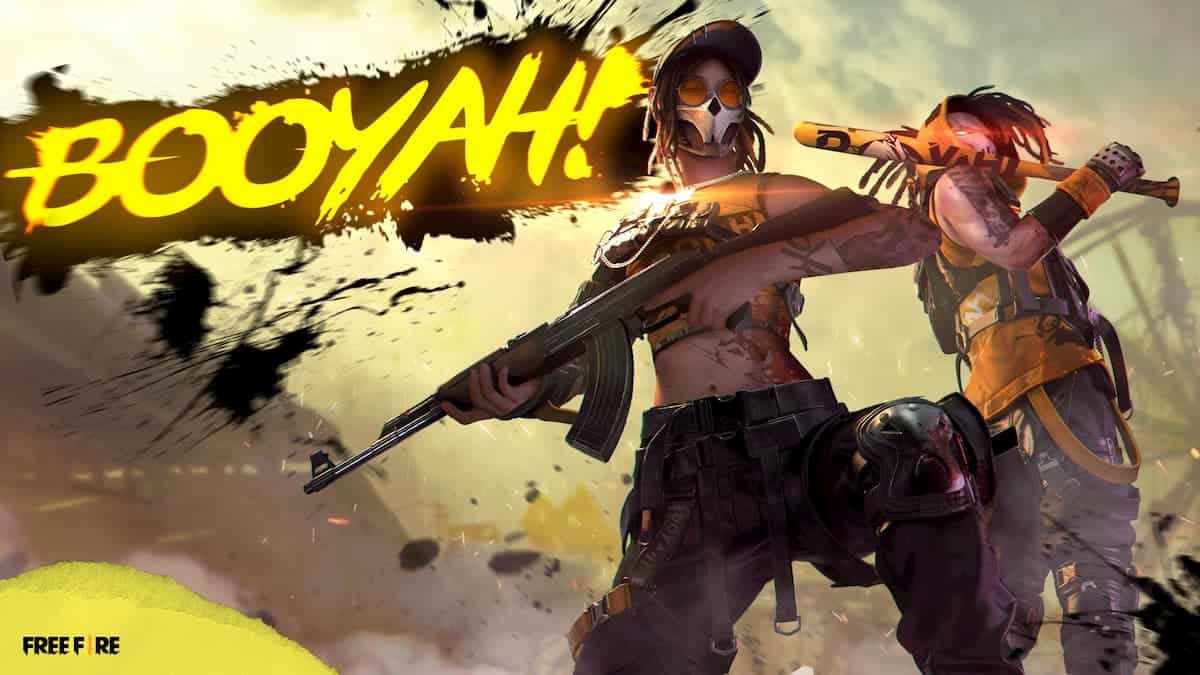
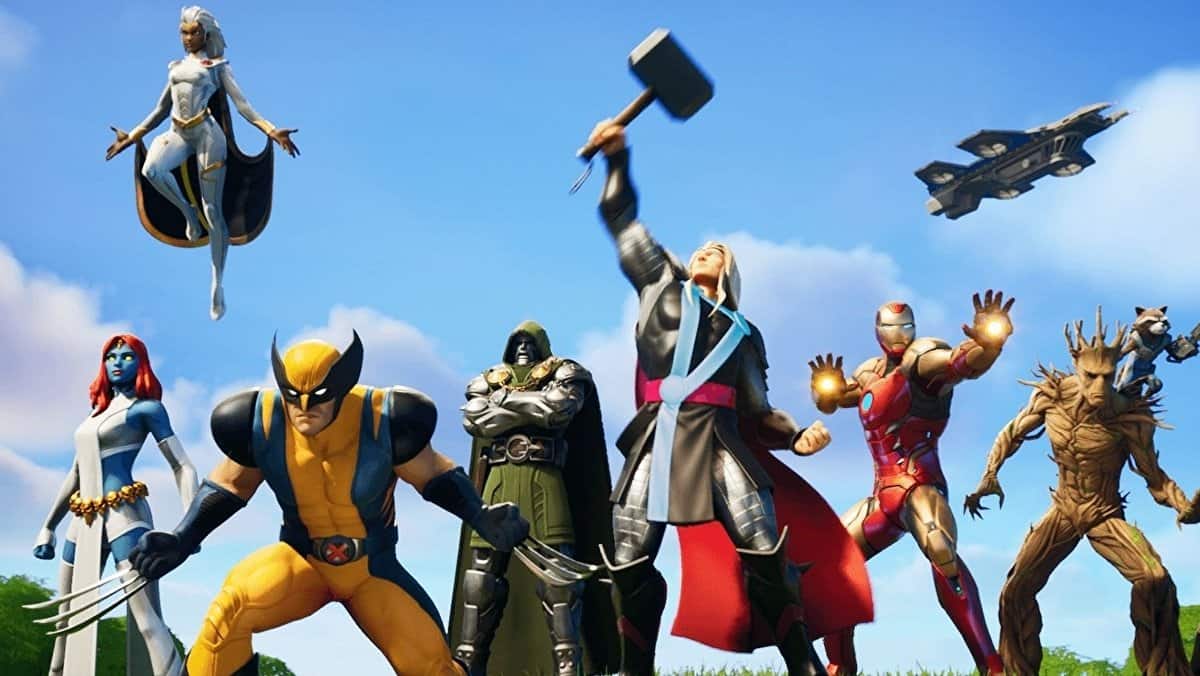

More Stories
Firefighting Simulator – The Squad review — Through the fire and the shame
Maid of Sker review — Death in the slow lane
PHOGS! review – It’s a dog-help-dog world out there